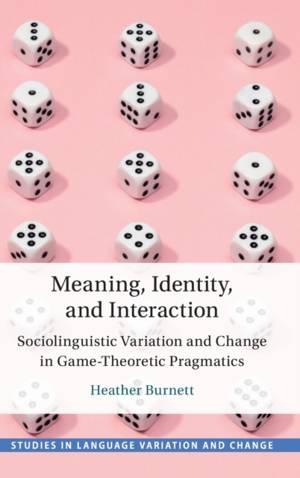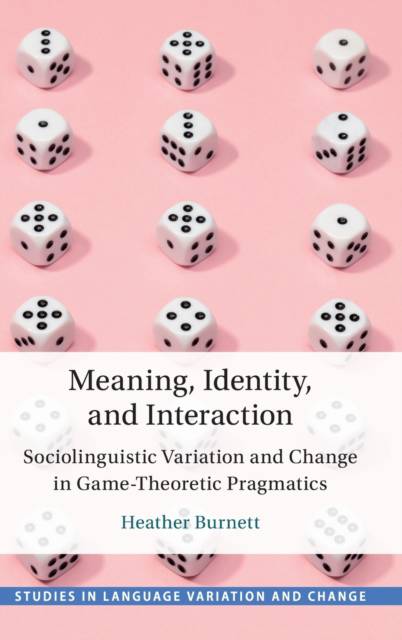
Door een staking bij bpost kan je online bestelling op dit moment iets langer onderweg zijn dan voorzien. Dringend iets nodig? Onze winkels ontvangen jou met open armen!
- Afhalen na 1 uur in een winkel met voorraad
- Gratis thuislevering in België vanaf € 30
- Ruim aanbod met 7 miljoen producten
Door een staking bij bpost kan je online bestelling op dit moment iets langer onderweg zijn dan voorzien. Dringend iets nodig? Onze winkels ontvangen jou met open armen!
- Afhalen na 1 uur in een winkel met voorraad
- Gratis thuislevering in België vanaf € 30
- Ruim aanbod met 7 miljoen producten
Zoeken
Meaning, Identity, and Interaction
Sociolinguistic Variation and Change in Game-Theoretic Pragmatics
Heather Burnett
€ 180,45
+ 360 punten
Omschrijving
Exciting parallel developments have been made in sociolinguistics and formal semantics, yet these two subfields have had very little contact in the past. This pioneering book bridges this gap, bringing together research and methodologies from both areas of study into a new framework for studying the relation between language, ideologies and the social world. It demonstrates how tools from semantics can be used to formalize theories from sociolinguistics, linguistic anthropology and gender studies, and also shows how tools from epistemic game theory can be used to bring those theories in closer line with empirical studies of sociolinguistic variation and identity construction through language. Engaging and accessible, it highlights how a cross-pollination of ideas in sociolinguistics and semantics can open up a completely new empirical domain of research. It is essential reading for sociolinguists interested in meaning, and semanticists and philosophers interested in language in its social context.
Specificaties
Betrokkenen
- Auteur(s):
- Uitgeverij:
Inhoud
- Aantal bladzijden:
- 250
- Taal:
- Engels
- Reeks:
Eigenschappen
- Productcode (EAN):
- 9781108841641
- Verschijningsdatum:
- 22/06/2023
- Uitvoering:
- Hardcover
- Formaat:
- Genaaid
- Afmetingen:
- 152 mm x 229 mm
- Gewicht:
- 480 g

Alleen bij Standaard Boekhandel
+ 360 punten op je klantenkaart van Standaard Boekhandel
Beoordelingen
We publiceren alleen reviews die voldoen aan de voorwaarden voor reviews. Bekijk onze voorwaarden voor reviews.











